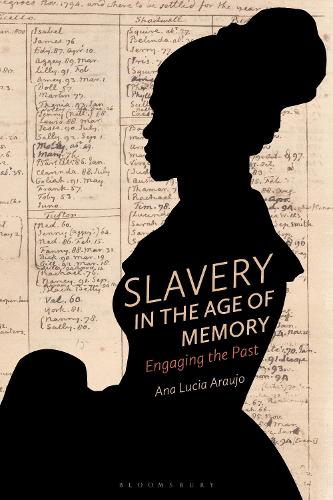
Slavery in the Age of Memory: Engaging the Past
(Hardback)
Available Formats
Publishing Details
Slavery in the Age of Memory: Engaging the Past
By (Author) Professor Ana Lucia Araujo
Bloomsbury Publishing PLC
Bloomsbury Academic
15th October 2020
United Kingdom
Classifications
Tertiary Education
Non Fiction
Social and cultural history
General and world history
306.362
Physical Properties
Hardback
272
Width 156mm, Height 234mm
540g
Description
Exploring notions of history, collective memory, cultural memory, public memory, official memory, and public history, Slavery in the Age of Memory: Engaging the Past explains how ordinary citizens, social groups, governments and institutions engage with the past of slavery and the Atlantic slave trade. It illuminates how and why over the last five decades the debates about slavery have become so relevant in the societies where slavery existed and which participated in the Atlantic slave trade. The book draws on a variety of case studies to investigate its central questions. How have social actors and groups in Europe, Africa and the Americas engaged with the slave past of their societies Are there are any relations between the demands to rename streets of Liverpool in England and the protests to take down Confederate monuments in the United States How have black and white social actors and scholars influenced the ways slavery is represented in George Washingtons Mount Vernon and Thomas Jeffersons Monticello in the United StatesHow do slave cemeteries in Brazil and the United States and the walls of names of Whitney Plantation speak to other initiatives honoring enslaved people in England and South Africa What shared problems and goals have led to the creation of the International Slavery Museum in Liverpool and the National Museum of African American History and Culture in Washington DC Why have artists used their works to confront the debates about slavery and its legacies The important debates addressed in this book resonate in the present day. Arguing that memory of slavery is racialized and gendered, the book shows that more than just attempts to come to terms with the past, debates about slavery are associated with the persistent racial inequalities, racism, and white supremacy which still shape societies where slavery existed. Slavery in the Age of Memory: Engaging the Past is thus a vital resource for students and scholars of the Atlantic world, the history of slavery and public history.
Reviews
[A] sharp analysis not just of how slavery is remembered, but of the ways it is erased. * Public Books *
[A] far-flung history whose strength is the breadth of individual, generational, intellectual, public, and activist efforts at commemorations, memorials and museums across a wide geographic range Slavery in the Age of Memory is a whirlwind tour packed into a brief, readable narrative. * American History *
The book is an important contribution to the analysis of Atlantic slave trade memory and its continued implications in current social contexts, especially regarding historic public spaces and memory institutions ... By engaging the past as a way to dissolve hegemonic memory, the book adds force to the urgent recognition of Black public history and to international efforts to promote human rights and a more equitable collective memory. * RACAR *
The Atlantic system of slavery shaped the characters of all the countries that slavery touched. Richly researched, Slavery in the Age of Memory is a fascinating and necessary look at how former slave societies, from Brazil to Virginia, have tried to process the memory of slavery in the midst of lingering traumas wrought by the institution. * Annette Gordon-Reed, Professor of Law and History, Harvard University, USA *
An important, comprehensive and insightful analysis of modalities of memory of slavery, this book is multi-layered, versatile and compelling. Revealing herself once again as one of the foremost international experts in the field, Professor Araujo meets and surpasses her long-established reputation for rigorous investigation, critical depth and astute observations. * Stephen Small, Professor of African American Studies, University of California, Berkeley, USA *
Drawing on a wide array of sources, Ana Lucia Araujo explores the ways that slavery and the Atlantic slave trade have been remembered and commemorated across the globe. From the Americas to Europe and Africa, Slavery in the Age of Memory demonstrates that people and institutions are still wrestling with slaverys past. This book is timely and necessary. * Erica Armstrong Dunbar, Charles and Mary Beard Professor of History, Rutgers University, USA *
Author Bio
Ana Lucia Araujo is Professor of History at Howard University, USA. She is the author of Public Memory of Slavery: Victims and Perpetrators in the South Atlantic World (2010), Shadows of the Slave Past: Memory, Heritage and Slavery (2014), Brazil through French Eyes: A Nineteenth-Century Artist in Brazil (2015) and Reparations for Slavery and the Slave Trade: A Transnational and Comparative History (Bloomsbury, 2017).
